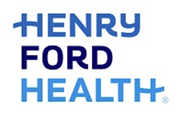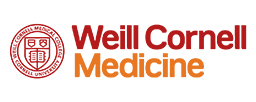The AAMC is pleased to announce the grantees for the Competency-Based Education in Telehealth Challenge Grant Program: Responding to the Teaching and Assessment Needs of Academic Medicine. In 2021, the AAMC released Telehealth Competencies Across the Learning Continuum to advance medical education in telehealth. To continue with the AAMC’s efforts, this program will support the development, dissemination, and integration of competency-based interprofessional education in telehealth as well as create a cross-continuum community of educators actively working to cultivate telehealth in medical student, resident, and continuing education programs.
The following member institutions will receive up to $40,000 for their innovative proposals to develop and disseminate resources during this 24-month grant. For any questions, please contact CurricularInnovation@aamc.org.
Henry Ford Health, Henry Ford Hospital

Project: Improving Feedback Delivery for Residents Participating in Virtual Care
The Henry Ford Hospital Department of Academic General Internal Medicine will develop a pioneering comprehensive training program for first-year residents in how to effectively provide medical care through a virtual medium. “Virtual care” is becoming a common mode of care delivery; however, caring for patients who are not physically present in the clinic has challenges and limitations, and residents are often required to provide virtual care without having been trained in this approach. The Henry Ford Hospital Department of Academic General Internal Medicine will first develop interactive didactic training modules to teach the fundamentals of providing virtual care, which will include the five key AAMC Telehealth Competency domains. Residents will then be observed, providing simulated virtual care to standardized patients through Objective Structured Clinical Examinations (OSCEs). Medical faculty will assess the residents on telehealth competencies and provide immediate, actionable feedback to help residents solidify learning. Importantly, because virtual care is often used by underserved patients who may have barriers to accessing in-person care, the training will also include how to address common social determinants of health during virtual encounters.
Key Project Objectives:
- Develop and implement a live training session that addresses the AAMC Telehealth Competencies.
- Develop and implement standardized telehealth clinical care OSCE experiences to evaluate resident telehealth competency.
- Develop formative feedback techniques to improve resident telehealth competency.
Kaiser Permanente Bernard J. Tyson School of Medicine

Project: A Competency-Based Approach for Telehealth Instruction and Assessment to Promote Equitable and Systems-Based Care Improvement Across the Medical Education Continuum
Kaiser Permanente Bernard J. Tyson School of Medicine aims to address the six domains of AAMC Telehealth Competencies by developing a longitudinal Diversity, Equity, Inclusion (DEI)-informed and systems-based curriculum across the medical education continuum, including undergraduate, graduate, and continuing medical education (UME, GME, and CME). A variety of inclusive pedagogical and assessment approaches will be aligned to learners' levels on the medical education continuum, as informed by stakeholders in an integrated healthcare delivery system. The use of assessments, curricular evaluation, and associated quality of care measures applicable to telehealth will then produce actionable formative feedback loops to help learners progress toward competency and improve integration with other competency frameworks (AAMC DEI, ACGME Milestones, ABMS/ACCME Core Competencies) – with the ultimate goal to promote equitable care access for all, including patient populations that have been historically marginalized and would benefit from optimal telehealth practices.
Key Project Objectives:
- Develop a DEI-informed, competency-driven telehealth curriculum with instructional modules aligned with the AAMC Telehealth Competencies.
- Develop and pilot a bank of simulated telehealth cases.
- Identify the role of DEI curricular scorecards and competency-mapped quality of care measures in producing feedback loops and quality improvement strategies for telehealth encounters with disenfranchised patient populations.
Medical College of Georgia at Augusta University

Project: Evaluating Correlation Between Competencies and Patient Outcomes in a Medical School Telehealth Educational Experience
The Medical College of Georgia at Augusta University (MCG) has an established longitudinal telehealth experience embedded into their curriculum. MCG intends to explore the connection between telehealth competencies and patient outcomes. During the first 18 months of medical school, MCG students participate in a Patient Centered Learning Clinical Experience course. At the core of this course is student-staffed telehealth clinical encounters with health system patients. MCG will assess the ability of a comprehensive patient-centered telehealth curriculum early in the professional development of students to directly impact patient care in the context of chronic disease management. MCG intends to monitor students’ progression through outlined competencies and the impact this has on patient adherence to a chronic disease care plan. In addition, MCG intends to develop curriculum adjuncts based on motivational interviewing techniques to empower students to connect with their patients, and partner more effectively with them via a virtual platform.
Key Project Objectives:
- Validate MCG’s CBME assessment approach by mapping patient adherence to a chronic disease management plan onto a student’s progression through telehealth competencies.
- Determine the effectiveness of an Motivational Interviewing curriculum to improve competency in the Access and Equity as well as the Communication domains of AAMC telehealth competencies by tracking improvement in chronic disease-focused patient outcomes.
New York University Grossman School of Medicine

Project: Using Simulation to Improve Telehealth Skills in Primary Care Across the Continuum
The Program for Medical Education and Innovations Research (PrMEIR) at New York University Grossman School of Medicine will use an extensive data repository to design competency-based education simulations for improving telehealth practice at undergraduate, graduate, and continuing medical education (UME, GME, and CME) levels. As telehealth becomes an integral part of standard primary care, clinicians and medical students will require individualized curricula to continue providing high quality virtual care. Drawing on over 15 years of work in simulation education, a collaborative, interdisciplinary team will develop targeted learning initiatives with announced standardized patients (ASPs)—professional actors trained to portray a standard patient case within the clinical setting and provide real-time feedback to clinicians. ASPs delivered directly to learners in their clinical environment provide rapid experiential learning with immediate, individualized feedback on their performance in the virtual environment. Aggregated data will be used to evaluate telehealth, communication, patient satisfaction, and care management skills, and inform development of curricular materials.
Key Project Objectives:
- Compare in-person and remote performance using existing standardized patient checklist data to understand clinical telehealth performance gaps at the UME, GME, and CME level with the incorporation of AAMC telehealth competencies.
- Develop and pilot unique assessments to identify gaps using simulated instructional design with ASPs.
- Create and disseminate educational ASP toolkits to improve practices across the continuum of education.
Renaissance School of Medicine at Stony Brook University

Project: Interprofessional Telehealth Training for Healthcare Students: Working Together to Teach Effectively in a Virtual World
The Renaissance School of Medicine at Stony Brook University will develop an interprofessional telehealth education course that can be integrated into the health science schools using a hybrid virtual learning model to address the core competencies of telehealth and interprofessional education (IPE). This curriculum will be designed by faculty from the different health professional schools including the School of Nursing, the School of Social Welfare, and the School of Health Professionals. The workgroup will develop interactive, online modules encompassing the core competencies that will form the backbone of the institution’s educational initiative. These modules will be available as standalone curriculum and eligible for CE/CME credit. With the incorporation of the learning modules, the faculty will create case-based learning activities to be studied in facilitator-led small groups to allow for application of core concepts. This course will also provide standardized assessments with simulated patients with longitudinal follow-up assessments to determine the impact on live clinical encounters.
Key Project Objectives:
- Develop a longitudinal interprofessional telehealth education course that addresses AAMC telehealth competencies.
- Design and implement assessment measures on the impact of telehealth education on student readiness.
- Design and implement assessment measures on students’ perceptions of telehealth practice.
Stanford University School of Medicine
Project: Telemedicine Competencies Across a Continuum: Integrating a Telemedicine Curricular Thread at an Academic Medical Center
While telemedicine offers opportunities to enhance health care access and create meaningful patient relationships, high-quality telemedicine delivery relies on the successful adoption of telehealth competencies into medical school curricula. Stanford School of Medicine is creating a longitudinal telemedicine curriculum for stepwise acquisition of telemedicine skills. Building on foundational skills in pre-clerkship years with simulated patients, clerkship students will advance to develop competencies in direct patient care which prioritize communication skills, physical examination, and medical decision-making regarding telemedicine appropriateness. Faculty will create and implement telemedicine Entrustable Professional Activities (EPAs) to assess telemedicine competencies in simulated and direct patient care (e.g., obtaining medical history in a virtual encounter) to empower students to function with increasing autonomy in preparation for residency. Finally, a key component of this project will be high quality, competency-driven faculty training to effectively integrate learners into clinical workflow while providing learner-appropriate supervision in ‘live’ clinical encounters.
Key Project Objectives:
- Use an interdisciplinary approach to develop and implement a longitudinal telemedicine curriculum for stepwise acquisition of telemedicine skills.
- Create and implement telemedicine EPAs to assess AAMC telemedicine competencies in simulated and direct patient care.
- Use live clinical encounters to prepare faculty to teach and assess telemedicine competencies.
Weill Cornell Medicine

Project: Tele-ACES (Appropriate Care and Escalation Strategies): A Simulation-Based Curriculum and Assessment to Teach Patient Safety in Telemedicine
The Weill Cornell Department of Emergency Medicine, through the Center for Virtual Care, will directly address a gap in telehealth education: patient safety and appropriate use of telehealth. Utilizing qualitative analysis of interview data, Weill Cornell Medicine will describe a conceptual framework for patient safety in a synchronous provider-to-patient telehealth encounter, including appropriate use of telemedicine and escalation of care grounded in the experiences and current competence of practicing telehealth physicians. Weill Cornell Medicine will then develop a distributable, simulation-based curriculum with an accompanying assessment tool to train physicians on how to decide when an encounter is appropriate for telehealth, determine when to escalate care, and identify the most appropriate approach of escalation. This curriculum will provide a scalable solution to support future doctors in providing safe telemedicine care.
Key Project Objectives:
- Describe a conceptual framework for patient safety in a synchronous provider-to-patient telemedicine encounter with appropriate use of telemedicine and escalation of care, utilizing aspects of AAMC telehealth competencies.
- Develop a simulation-based curriculum with an accompanying assessment tool to train physicians on telemedicine encounters and escalation of care.